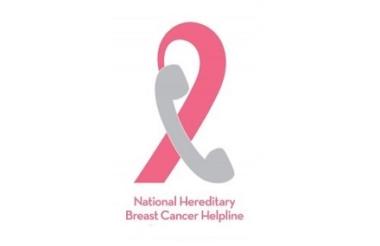The Charity Commission has issued its first official warning issued to a charity, it said today in a case report.
The warning was given to the National Hereditary Breast Cancer Helpline after the charity found itself in financial difficulty and failed to comply with the regulator’s action plan.
The power to issue official warnings was introduced by the Charities Act and came into effect on 1 November.
Sector bodies have previously expressed concern about how and when the Commission might use this power and in response the Commission extended the notice period for publication of warnings from 14 days to 28 days.
The charity
The National Hereditary Breast Cancer Helpline was founded in the 1990s and registered as a charity in 2012.
It runs a 24-hour helpline providing advice for people with hereditary breast cancer and those at risk of the disease. It also runs 36 support groups and has charity shops to raise money and act as points of contact for people.
Its founder, Wendy Watson, acted as its chair until October 2016. She was awarded an MBE in 2012 for services to people with breast cancer.
The charity’s accounts for the year ending March 2016 show a total income of nearly £925,000 and expenditure of £948,000.
Most of its income came from its charity shops and it has 40 members of staff.
It owes Watson £62,000, with £30,000 of this being due within one year, after she loaned the charity money. The accounts said: “The loan was unsecured, interest free and had no fixed repayment date. The trustees approved to repay £30,000 of the loan before 31 March 2017.”
Her daughter was also paid as a fundraiser during the year, earning £17,849 in salary and expenses.
‘Lack of financial controls’
The National Hereditary Breast Cancer Helpline was randomly selected for closer scrutiny and the Commission discovered that the “charity and its assets had been exposed to undue risk through a lack of appropriate financial controls and its financial model was unsustainable”.
In the compliance case report, the Commission said many of the charity’s shops were running at a loss, the charity relied on loans and it had made unauthorised payments to the chair.
The Commission said that the chair was being paid for “work undertaken running the charity’s operations”. However the chair was also the only signatory on the charity’s bank accounts so they were “authorising payments to themselves”. It had also received loans from a trustee without a formal agreement or repayment schedule.
The regulator said that trustees were “failing to comply with their responsibility to manage and administer the charity” and did not meet regularly or take collective decisions.
After the first compliance visit the Commission issued the charity with an action plan but the charity did not fully comply with this.
The chair resigned, but continued to run the charity and receive payments with trustees “continuing to allow the former chair to make key decisions about the operation of the charity”.
The Commission was also concerned that some measures to improve financial controls at the charity had not been adopted.
“Given the nature and seriousness of the issues, the trustees were given a chance to resolve them but failed to fully comply with the action plan to do so, the Commission concluded it was appropriate and proportionate to issue the charity with an official warning to promote compliance,” the Commission said.
The warning outlines what the charity needs to do “to prevent further breaches”. These are:
- ensure that any payments to individuals are made lawfully and that any appropriate consent from the Commission is obtained beforehand
- ensure that any loan agreement provides sufficient protection of the charity’s interests and is both reviewed and documented sufficiently
- ensure that all decisions are properly and adequately recorded
- ensure that the trustees alone take trustee decisions regarding the management and administration of the charity, and must delegate only in accordance with their duties
- develop and implement sufficient financial controls to ensure the charity’s assets are not exposed to undue risk
The Commission said that due to the sums involved and the work done by the charity it is “not proportionate” to make the chair repay the money.
It said that trustees have taken some action already and that it will continue to monitor the charity.









